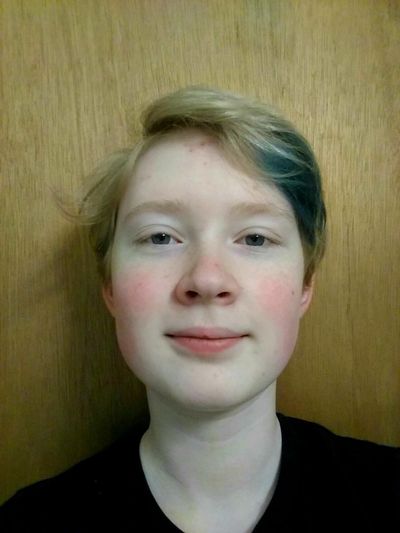Eva Lassman Memorial Art And Essay Contests: Middle school, second place essay

The Spokane Community Observance of the Holocaust has announced the top three selections in its 13th annual Eva Lassman Memorial Writing and Art Contests. The contest theme is “Speaking Up for ‘the Other’.”
The contest asked participants to learn about the Holocaust and read about or listen to some of the many stories of survivors who were labeled “the other” by the Nazis, and address two questions:
1. What are the lessons you learned from their stories that had a major impact on you? Why is it important to speak up for those who are considered “the other”?
2. Who are “the other” today? Based on the lessons you learned, what are you motivated to do to speak up for them?
The second place essay in the middle school category follows.
Oppression of “the Other”
By Charlotte O’Donoghue
Eighth grade
Chase Middle School
The Holocaust was the systematic extermination of “inferior” peoples by the Nazis, most notably the Jewish community. Six million Jews were killed either by being shot, starved or gassed. The Jews were not persecuted alone; other races such as the Slavic people and Roma (Gypsies), along with the disabled and homosexuals were also put into the same camps. These actions relied, in large part, on defining whole groups of individuals as “the other.” Although most of the “others” during the Holocaust have passed away, we can still keep them alive through their stories.
The main reason we study history is so that humanity doesn’t repeat its past mistakes. People like Charlene Schiff share their stories today for the same purpose. Her story consists of how she escaped a ghetto with her mother by standing for four days straight in a river. Charlene states, “We spent several days, I don’t remember exactly if it was four or five days and nights in the river, and we could not cross in order to get to the farmer’s place. And during that time, I would doze intermittently. My mother could crouch because she was taller, but I couldn’t because if I did, I would drown, so I had to sleep standing up and my mother would support me with her hand on my back. I was dozing one time and when I woke up my mother was gone. I felt like screaming but I knew I had to keep quiet and I was looking all around, and my mother wasn’t there” (Charlene Schiff).
This story especially touched me, because I got a new perspective on how families can be separated, and how it could be so sudden and without any warning. In all my life, I have never experienced anything of this sort, and I don’t think I would have been able to bear it if I had. I can relate this story with what’s happening in the United States at this very moment. As Miriam Jordan, a reporter from the New York Times says, “The federal government has reported that nearly 3,000 children were forcibly separated from their parents under last year’s ‘zero tolerance’ immigration policy, under which nearly all adults entering the country illegally were prosecuted, and any children accompanying them were put into shelters or foster care.” This is a lot like the Holocaust, no matter which way you look at it. I think that if we really want to respect the stories and horrible pasts of others, we need to fix what’s going on in the world right now.
The “others” have gone through many hardships throughout their lives, more than we could ever imagine, and that’s why we need to stand up for them. Standing up for someone is sometimes hard, because you’re usually focusing on how you could help yourself instead of other people. One example is when the United States didn’t want to get involved in World War II immediately for many reasons. If the United States had stepped in at the beginning of the Holocaust and gone to war against the Axis powers, the Holocaust may not have even happened. What we need to do for “the others” is to remember their stories and to always step in when someone is being treated unfairly.
Today, the “others” are all around you. Every single person is different from the next, and that’s the beauty of human beings. It’s so cruel to judge someone on their religion, race or gender. Sometimes there is an underlying purpose for bullying someone. Some people need to feel more powerful and impressive than they really are, which is the case almost everywhere you see bullying, including Nazi Germany and Hitler. He used his power to sever Jews from the rest of society and began to persecute them for absurd reasons. All power-hungry people are the same, and propaganda is their ultimate weapon.
Since this one event, humanity has displayed many examples of oppression, including events that are happening today. I hope that we now come to realize that everyone on earth belongs, no matter who or what they are. Most importantly, I hope that you now know how essential understanding and standing up for people is. We all have the potential to give and receive empathy; we just have to remember that what we do always has consequences.